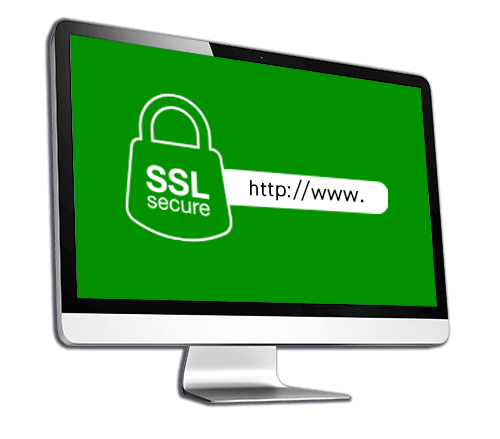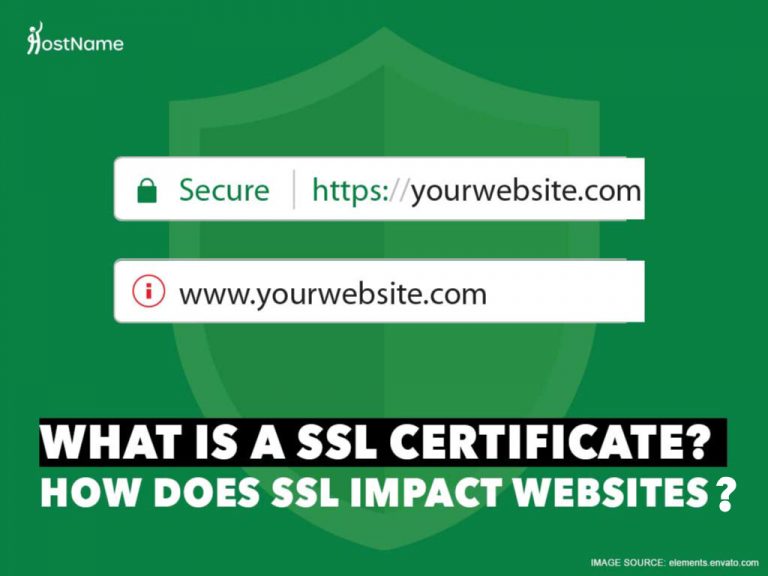SSL or Secure Sockets Layer Certificates are like well paid security guards who watch over your website. They work all day, everyday protecting your site from intruders. SSL Certificates encrypt or scramble all the sensitive information sent across the internet and ensure only the intended receiver sees it. Every time you enter your username, password, name, address, credit card or banking information on a website, SSL Certificate is what protects that information from getting into the hands of hackers and identity thieves. They give this guarantee by scrambling the information that is sent and then unscrambling when it gets to the planned receiver.
Table of Contents
What is the goal of SSL Certificates?
As noted in the description above, SSL Certificate is all about security. The goal is therefore to provide a safe and secure environment within which users can send and receive sensitive information, including personal data, payment or login information.
It is an alternative to what is referred to as plain text data transfer. With that form of transfer, your connection to a server is encrypted or unscrambled. This makes it easy for anyone to collect your information and use it in any way they choose. Imagine being arrested for a crime you didn’t commit, because your identity was stolen?
SSL Certificates goal is to ensure that doesn’t happen by making it harder for crooks and hackers to spy on the connection and steal yours or your client’s sensitive data.
Why is SSL impact important for your Website?

The day-to-day operation and survival of websites that collect people’s personal information is highly dependent on the level of security provided to clients. But those websites are not the only ones that require security. As long as you have a website that users interact with, there should be some level of security provided. This means the SSL Certificate used may differ based on your website and its purpose.
But whether you use, the Extended Validation (EV SSL), Organization Validated (OV SSL) or Domain Validated (DV SSL), an SSL Certificate is a necessity, because it will impact your website.
How does SSL Impact Websites?
As mentioned before, SSL Certificates are like well paid security guards for your website, which is a pretty big deal, but outside of that, there are a host of other ways that these certificates impact your website.
They impact your site’s search engine optimization and can mean the difference between your site losing out to a competitor or outranking them, among other things.
Here are a five ways that SSL Certificates impact websites.
1. They provide authentication:
Things are not always what they seem to be, so any server can easily pretend to be your server and capture all the information, sensitive and otherwise, that people send along the way. Imagine having to worry about that every time you visit a website?
SSL takes that stress away from the website owner and users. It validates your website by proving your server’s identity through the use of the padlock symbol in the browser, https or listing the company’s name in green. Either way, the certificate tells people visiting your website that you are credible.
2. They create credibility and trust for your customers:
If your website requires people to give you their sensitive information, they will need to trust that you are who you say you are and that you are able to protect the information they share.
A significant benefit of SSL certificates is the fact that protect the sensitive information being transmitted to and from your site. Such information can range from login details, signups, addresses and payment or personal information.
SSL Certificates will display a security padlock in the address bar of your browser. This tells users that the connection is safe and secure. It also sends the message that you take your visitors’ privacy seriously.
Some browsers will tell browsers your site is not safe, if you do not have an SSL Certificate and no one wants to do business with an unsafe website, because they will not trust it.
3. They ensure compliance with industry standards:
Some industries, like finance, require organizations to maintain certain basic levels of security. The Payment Card Industry also has rules that websites accepting credit card and other sensitive information must follow. One of those requirements is using an SSL certificate. SSL Certificates also prevent you from getting penalized for a lack of security. Google, for example will penalize your website if it is not properly secure, which will affect your search rankings.
Simply put, a lack of compliance and the absence of an SSL Certificate leave you susceptible to losing valuable business as your customers will know your website is not secure or legitimate and not do business with you.
By now, you should be convinced of the importance and impact of having an SSL Certificate. However if you still need convincing, here are some other ways that SSL Certificates, impact your website.
4. They provide safety for all your sub domains:
If you are a business owner or main large websites and several sub domains and you are thinking of securing all of them, the Wildcard PositiveSSL Certificate provides that. However, if you opt to use a standard SSL, you would have to install separate certificates for each of your sub domain, but with a Wildcard SSL one certificate does the job of securing everything.
5. They provide SEO advantages:

The SEO improvement in rankings that SSL Certificate provides is another major benefit for your website. Websites with encrypted connections get an automatic boost in rankings from Google. This is in keeping with Google’s HTTPS everywhere initiative. The boost may be slight, but having an SSL Certificate already gives you a heads up over your competitors who don’t have certificates.
Which SSL Certificate provides the most impact for your website?
SSL Certificates are alike, yet different. They all do the same thing, but in different ways and at different levels. For example, all these Certificates provide:
- Encryption
- Data integrity
- The same level of encryption
However, there differ on a number of things, such as:
- Security levels
- Vetting and verification processes
- The look and feel in the browser address bar
Knowing what your website needs and purposes are will help you determine which SSL Certificate is best for you. The certificate you choose will ultimately have the most impact on your website.






